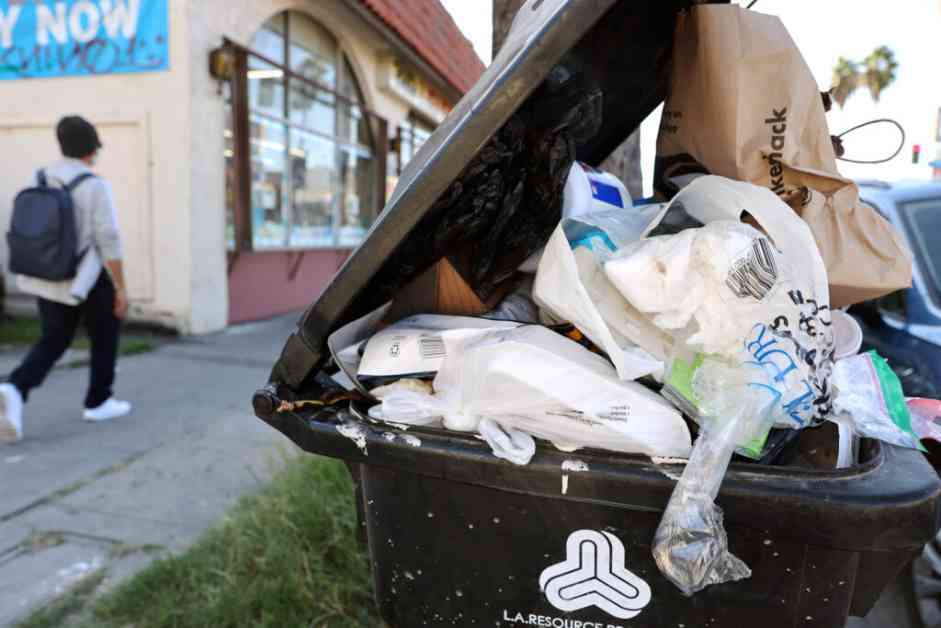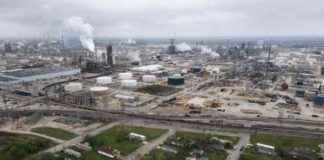The 1940s brought a petrochemical industry boom that promised convenience and innovation for harried housewives, with products marketed as low-cost solutions. However, these products were crafted from climate-polluting fossil fuels and laden with hazardous chemicals. In a recent peer-reviewed commentary in the journal Environmental Innovation and Societal Transitions, a team of scientists and policy experts highlighted the failure to recognize the ties between climate and chemical pollution, warning of the impending destruction of life-sustaining conditions on Earth.
Impact of Fossil Fuel-Derived Chemicals
Fossil fuel-derived chemicals are present in a wide range of consumer, agricultural, and industrial products, contributing to various chronic diseases, contamination of air, water, and soil, and posing a global crisis akin to the climate and biodiversity crises. While discussions on climate change often revolve around reducing greenhouse gas emissions, the attention on the oil and gas used for power and transportation overshadows the impact of these resources on manufacturing chemicals and materials that surround us.
Lead author Xenia Trier, an associate professor of environmental analytical chemistry at the University of Copenhagen, emphasized the need to address the oil and gas components driving climate change and chemical pollution. In the face of increased plastic production driven by petrochemicals, strategies must consider the energy inputs, raw material extraction, and the environmental consequences of transition. Trier and her colleagues stress the importance of recognizing the intricate links between chemical pollution, climate change, and biodiversity loss, exacerbated by a consumer society built on unsustainable growth.
Unveiling the Unseen Costs
The oil and gas industry is forecasted to expand its production for chemicals and plastics, with petrochemicals projected to drive over a third of the global oil demand growth. Plastics, in particular, have seen exponential production growth, with tripled projections by 2060. However, the allure of cheap plastics conceals staggering health and environmental costs exceeding billions of dollars annually, with companies passing on these harms to citizens and governments worldwide without compensation.
Expert Gretta Goldenman stresses the urgency of addressing the growing plastics and chemicals industry, pointing out the need to shift from fossil fuels and toxic chemical production towards sustainable solutions. The environmental toll of plastics extends through their life cycle, from extraction of raw materials to ultimate disposal, necessitating a comprehensive approach to mitigate climate and chemical pollution. Strategies like transitioning to bio-based feedstocks require careful consideration to avoid further environmental degradation and resource depletion.
Embracing Sustainable Solutions
To combat the intertwined issues of climate change, chemical pollution, and biodiversity loss, a paradigm shift towards sustainable chemical and material production is essential. By prioritizing environmentally friendly, durable, and repairable products, societies can reduce dependency on oil and gas while promoting circularity in resource usage. This transformative approach aims to restrict harmful raw materials to essential uses, prevent environmental harm, and promote safe and sustainable design principles across industries.
The authors underscore the need to address overconsumption and shift towards a more sustainable economic model that prioritizes long-term environmental health over short-term profit maximization. By rethinking the throwaway mindset that prevails in consumer societies, and promoting products designed for environmental sustainability, we can steer away from the trajectory that threatens the planet’s health. As we navigate the complexities of climate change, chemical pollution, and biodiversity loss, it’s imperative to recognize the interconnectedness of these challenges and adopt holistic solutions for a sustainable future.














